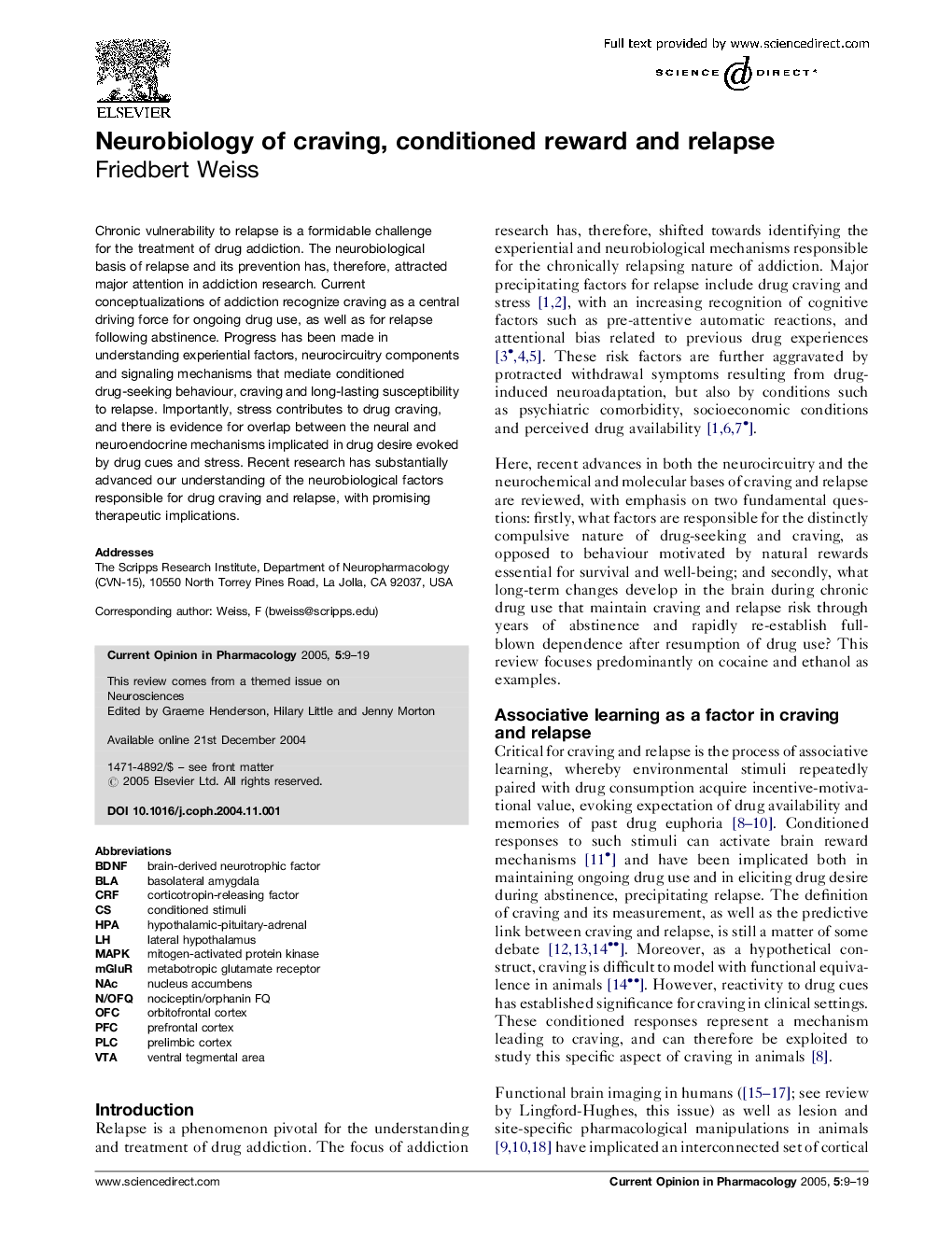| Article ID | Journal | Published Year | Pages | File Type |
|---|---|---|---|---|
| 9006542 | Current Opinion in Pharmacology | 2005 | 11 Pages |
Abstract
Chronic vulnerability to relapse is a formidable challenge for the treatment of drug addiction. The neurobiological basis of relapse and its prevention has, therefore, attracted major attention in addiction research. Current conceptualizations of addiction recognize craving as a central driving force for ongoing drug use, as well as for relapse following abstinence. Progress has been made in understanding experiential factors, neurocircuitry components and signaling mechanisms that mediate conditioned drug-seeking behaviour, craving and long-lasting susceptibility to relapse. Importantly, stress contributes to drug craving, and there is evidence for overlap between the neural and neuroendocrine mechanisms implicated in drug desire evoked by drug cues and stress. Recent research has substantially advanced our understanding of the neurobiological factors responsible for drug craving and relapse, with promising therapeutic implications.
Keywords
PFCBLANACmGluRCRFOFCPLCVTAbasolateral amygdalaBDNFMAPKN/OFQnociceptin/orphanin FQcorticotropin-releasing factorBrain-derived neurotrophic factorprefrontal cortexorbitofrontal cortexprelimbic cortexconditioned stimuliHPAventral tegmental areaNucleus accumbenslateral hypothalamushypothalamic-pituitary-adrenalmitogen-activated protein kinaseMetabotropic glutamate receptor
Related Topics
Life Sciences
Neuroscience
Cellular and Molecular Neuroscience
Authors
Friedbert Weiss,
